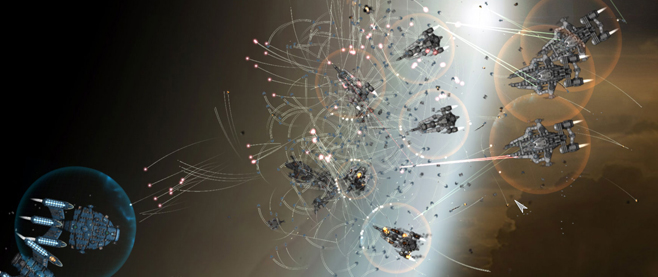
PAGAN: Autogeny and Queering Online Spaces
We often talk about the internet as a series of spaces, and in a way, that’s a strange phenomenon. After all, when we post on Twitter or Facebook, it’s not actual space that we’re taking up. Everything is generated by the computer, and the space in question exists in ephemeral terms. Yet online spaces encompass nearly every quality we assign to spaces aside from the physical volume. When we think of spaces, we often think of them as containers that you fill things with. This goes for people as well. Spaces become social spaces when like-minded individuals bound by a common thread come together and inhabit them. But those are actually intangible too, as the physical container isn’t what matters, it’s the construct of inhabitance that these social groups create. It’s like if a milk carton was willed into existence by the presence of a quart of milk.
But online, meanwhile, requires a space to be created first, one that has intent and clarity of purpose. Twitter and Facebook were created to be social spaces, after all. But you can still see the seams of the intent behind these spaces, with the values of the creators reflected in their moderation choices. And we see users leveraging these spaces for things that the creators never envisioned for them. In that vein, massively multiplayer online games become something of a living metaphor for social spaces, an ephemeral concept given virtual dimensions, their creation an invitation to socialize and level up with others, but which takes on new meaning due to the values of the players. So what happens when that container is emptied? What happens when the living metaphor dies? What’s left after that? These are the questions that PAGAN: Autogeny seeks to answer as it invites you to explore a cast-off shell of a dead MMO. And those answers, it turns out, are inexorably queer.
As you step into the world of PAGAN for the first time as the user VIVIAN, it’s unclear what its original purpose was. You know from reading the description that it’s a dead MMO, but you’re greeted with a misty, low-polygon environment made to look like a gift shop and food court. Future environments are a town block and ruins that resemble Stonehenge. But the most striking thing is how empty everything feels. All the different zones are big enough to get lost in, yet there’s nothing of consequence in them. A later zone set in a desert still has enemies that you can kill. And one of the first houses you visit contains a boss enemy. So the mechanisms of the shell still work. But the space is hollowed out.
That is, until it isn’t. You find a scant few other player characters who recognize you and act like you’ve all been visiting this game for a long time. That’s when you begin to feel what the game could have been like when it was full of player characters. But you’re not concerned with playing the game. Elements of it are brought up in passing, but the implicit bond you and the other players share is immediately apparent even though there’s only a few lines of dialogue to go off. These connections set the stage for a kind of virtual microarchaeology, where you aren’t digging up what the big picture of the game was, but rather what the game was and is to a select few.
The game elements you run into are puzzling at best if taken at face value. The different aspects of your character you can level up include Estrogen, Poetry, Body Forging, and Caffeine. It quickly becomes clear that developer Oleander Garden is using the MMO construct in an allegorical sense. PAGAN certainly speaks to how groups of individuals interact with a virtual game space, but to VIVIAN and her friends, what the game is actually about according to the creators isn’t the point. The game, then, becomes about what they make of it – in this case, as a plane of existence for trans women to explore themselves, to interact with other trans women, to mess around with the character creator as they forge bodies that they may not be able to as easily outside of the computer space. In that light, those stats express the values of these particular players. They may not be what the creators of the fake game had in mind, but that doesn’t make them any less real or valuable.
As queer people, we have to assert ourselves in spaces so we don’t lose who we really are. In the world outside of the internet, that means either being out and proud to a world that would rather we not exist, or blending in in order to survive. These are two equally valid states of being that can fluctuate depending on the relative safety level of the environments we inhabit. The beauty of online spaces is that we can find other queer people and form ad-hoc communities separate from even the point of these programs. They’re necessary because we often find ourselves in unsafe environments, so we take over a piece of a game, for instance, in the hopes of just being able to be ourselves, if only for a small slice of our lives.
In truth, PAGAN: Autogeny isn’t fully hollowed out. Not truly. It’s emptied just enough to reveal a cross-section of a community within a community, a metaphor within a metaphor for how queer people attempt to exist in a world that’s hostile to us. In truth, PAGAN is a transformation of what the game was in theory into what the game really is for a group of trans women. And that transformation, that queering of a piece of software that was never intended to be queered, is what’s both beautiful and heartbreaking about being queer.





